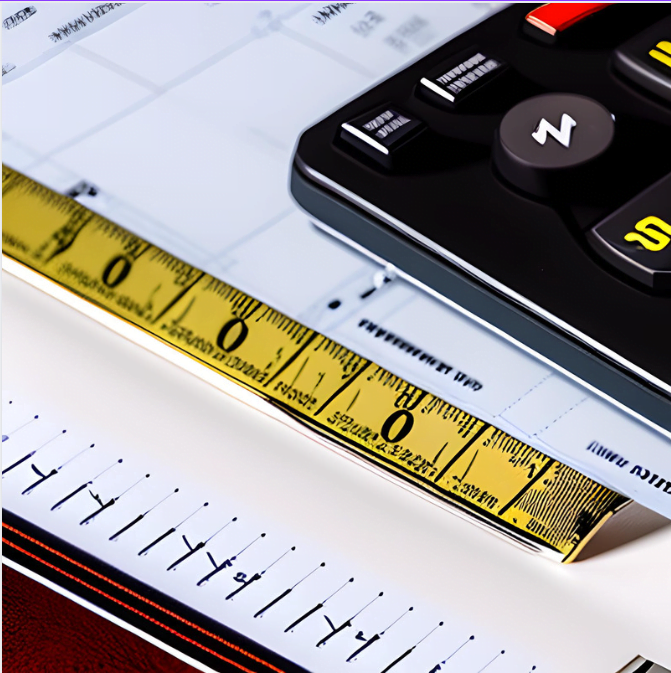Last Updated on May 21, 2024
All sources have been thoroughly verified for credibility. Furthermore, an industry specialist has reviewed and approved the final article.
Italy, with its breathtaking scenery, captivating history, and hospitable locals, draws in many foreigners looking for real estate investment opportunities. According to the Italian National Institute of Statistics (ISTAT), the rate of homeownership in Italy is relatively high, with over 70% of people owning their homes. This statistic is attributed to several factors, including cultural traditions and government policies that promote property ownership.
Nevertheless, navigating the complexities of buying property in a foreign country can be difficult, especially when it comes to the legal framework and regulations involved. That’s why this guide is here to help! We’ll explain how the property market works in Italy in an uncomplicated and easy-to-grasp way, covering all the information you need.
Can You Purchase and Own Property in Italy as a Foreigner?
Absolutely! Foreign nationals are indeed permitted to buy property in Italy. In fact, Italy is considered foreigner-friendly and has attracted approximately 5.2 million foreign property owners . This openness to foreign investment and ownership has contributed to the country’s appeal and popularity among international buyers.
Foreigners in Italy are allowed to purchase various types of properties, including houses, commercial and residential properties, as well as land plots. They are also authorized to rent out or sell their properties later. However, the process may vary depending on the buyer’s residency status and nationality.
If You Reside in Italy
Foreigners living in Italy can buy property, regardless of how long they have resided in the country. To be eligible, your residence permit must be for one of these reasons:
- Employment or self-employment
- Owning a business
- Family-related reasons
- Studying
Your family members must also have a residence permit. Refugees or stateless individuals must have lived in Italy for at least three years.
If You Don’t Reside in Italy
You Are an EU Citizen
If you are a citizen of a European Union (EU) country or a European Economic Area (EEA) country (Iceland, Liechtenstein, or Norway), you are allowed to buy property in Italy without any special restrictions. The process for buying a home in Italy is the same as it is for Italian citizens.
You Are Not an EU Citizen
For non-EU or non-EEA citizens, property purchase is possible if there is an international treaty that allows Italian citizens to buy property in the foreigner’s home country. This reciprocal agreement ensures that both countries allow each other’s citizens to own property. For example, American citizens can buy property in Italy due to such an agreement between the two countries . This rule is very strict, and Italian notaries cannot facilitate property purchases for nationals of countries without a reciprocal agreement.
Italian Tax Number
Regardless of your residency status, obtaining an Italian Tax Number (Codice Fiscale) is mandatory to complete a property purchase.
Can You Get a Residence Permit by Purchasing Property?
Owning property in Italy does not automatically grant you a residence permit (permesso di soggiorno). You will need to explore various visa options and apply for permanent residency through standard procedures, which may include options such as employment, self-employment, studying, or family reunification.
Should You Buy or Rent Property in Italy?
Whether to buy or rent property in Italy depends on your personal circumstances and long-term plans.
Why It May Be Better to Rent
Renting is recommended if:
- You are unsure about your long-term plans or the area you want to settle in.
- You prefer to avoid the costs and responsibilities of property maintenance.
- You have a limited budget and want to avoid high upfront costs.
- You enjoy the flexibility to move around different regions or cities within Italy.
- You want to avoid potential fluctuations in property values.
- You want to avoid the complexities of the Italian real estate market.
- You prefer to invest your money in other opportunities or assets.
- You want to avoid the legal and bureaucratic processes involved in buying property.
Why It May Be Better to Buy
Buying is more suitable if:
- You plan to establish a permanent residence in Italy.
- You have a stable financial situation and can make a substantial investment.
- You want to customize and personalize your living space according to your preferences.
- You want to take advantage of potential appreciation in Italy’s real estate market.
- You are looking for a potential source of rental income.
- You value stability and want to avoid rising rental costs.
- You want to secure a fixed housing cost over time.
- You want to build equity and have a tangible asset in Italy.
- You have a deep attachment to a specific area or community in Italy.
Financial Considerations
Understanding rental yields can help you decide. Rental yield is the percentage of income you can expect to earn from renting out a property compared to its total cost. In Italy, rental yields typically range from 2.5% to 5.5% . If you can generate a higher return on your capital through other investments, it may be more advantageous to rent and invest your capital elsewhere. Otherwise, buying property could be a better financial decision.
The Property Market in Italy
Market Data
Italy is considered a stable country, which attracts sustainable development and investor confidence. Over the past five years, Italian GDP per capita has increased by 28.9%, indicating a growing economy . This economic growth can lead to increased real estate demand and potentially higher property prices in the future.
Rental properties in Italy offer gross rental yields between 2.6% and 5.3%, suggesting a balanced return on investment for property owners . The housing market has shown signs of stagnation, with modest increases in property values. However, moderate inflation, projected at an average yearly increase of 2.5% over the next five years, suggests that housing prices may rise accordingly .
Property Prices in Major Cities
Here is a detailed table of property prices in popular Italian cities:
| City | Budget (EUR) | What You Will Get |
|---|---|---|
| Rome | €200,000 – €400,000 | Apartments in historic buildings near the city center |
| Milan | €350,000 – €700,000 | Modern luxury condos with city skyline views |
| Florence | €250,000 – €500,000 | Renovated historic townhouses with Tuscan charm |
| Venice | €400,000 – €800,000 | Waterfront apartments with canal views |
| Naples | €120,000 – €300,000 | Spacious apartments with a balcony overlooking the sea |
| Turin | €150,000 – €350,000 | Cozy apartments in charming neighborhoods |
| Bologna | €250,000 – €500,000 | Elegant apartments in the historic city center |
| Verona | €200,000 – €400,000 | Quaint houses with beautiful views of the Adige River |
| Genoa | €180,000 – €400,000 | Apartments with balconies offering stunning sea vistas |
| Palermo | €100,000 – €250,000 | Bright apartments in vibrant neighborhoods |
Life as an Expat in Italy
Integration with Locals
Italians are generally warm and friendly to expats. Integration is greatly enhanced by learning Italian and embracing local customs. Only about one-third of Italians speak English, and within this group, a significant portion can only communicate in very basic English .
Education
Italy offers a range of educational opportunities for expat families. International schools in major cities provide high-quality education following various curricula. Public schools are also an option, but proficiency in Italian is usually required.
Safety
Italy is generally safe, with petty theft and pickpocketing being the most common crimes in crowded areas. Violent crimes are rare, and the overall crime rate is moderate. Common sense precautions can minimize risks .
Healthcare
Italy has a well-developed healthcare system providing universal coverage, including for expats. Public healthcare is generally of good quality but can be bureaucratic. Private healthcare offers quicker access and a wider range of services. Comprehensive health insurance is advisable to cover medical expenses .
Cost of Living
The cost of living varies by region. Major cities like Rome and Milan are more expensive, while smaller towns and rural areas are more affordable. Here’s some data for reference:
- Weekly grocery bill for a family of four: around €150
- Monthly public transportation pass: €35-50
- Meal for two at a mid-range restaurant: €50-70
- Monthly utilities: €150-200
- Basic health insurance: €150-200 per month
- Annual tuition for public university: €1,000-4,000
- Cinema ticket: €8-10; Concert ticket: €30-100
Cultural Experience
Living in Italy provides an unparalleled cultural experience. The vibrant arts scene, historical sites, and culinary delights are some of the many highlights. Italians deeply appreciate their heritage and enjoy sharing it, making it easier for expats to participate in local festivals and events .
Best Places to Buy Property in Italy
The best location depends on your preferences:
- Florence: For historic charm and Renaissance art.
- Amalfi Coast: For stunning coastal retreats.
- Tuscany: For tranquil countryside escapes.
- Rome: For vibrant urban living with ancient landmarks.
- Lake Como: For beautiful lakeside settings.
Here’s a summary of top locations:
| City / Region
| Key Features |
|—————|————–|
| Florence | Renaissance art, historic charm, cultural richness |
| Amalfi Coast | Breathtaking coastal views, luxury retreats |
| Tuscany | Picturesque countryside, wine regions, medieval towns |
| Le Marche | Italy in one regione, beaches, hills, and mountains |
| Rome | Ancient landmarks, vibrant urban life, cultural heritage |
| Lake Como | Serene lakeside settings, elegant villas, natural beauty |
How to Buy Property in Italy
Step-by-Step Guide
- Research and Budgeting: Understand your financial capabilities and research the Italian property market.
- Hire Professionals: Engage a local real estate agent and a lawyer to assist with the legalities.
- Property Search: Begin viewing properties that meet your criteria.
- Make an Offer: Once you find a property, submit a formal offer.
- Preliminary Agreement: Sign a “Compromesso” (preliminary contract) and pay a deposit (usually 10%).
- Due Diligence: Conduct thorough checks on the property, including legal and structural aspects.
- Final Contract: Sign the “Rogito” (final deed) in front of a notary and pay the remaining balance.
- Registration: Register the property in your name with the local land registry.
Associated Fees
When buying property in Italy, you can expect to incur several fees:
- Agent’s Fee: Typically 3-5% of the purchase price.
- Notary Fee: Approximately 1-2% of the purchase price.
- Legal Fees: Varies, usually around 1-2% of the purchase price.
- Registration Tax: Varies depending on the property type and your residency status.
Here’s a breakdown of common fees:
| Type of Fee | Approximate Percentage of Purchase Price |
|---|---|
| Agent’s Fee | 3-5% |
| Notary Fee | 1-2% |
| Legal Fees | 1-2% |
| Registration Tax | Varies by property type and residency status |
Conclusion
Acquiring property in Italy can be a worthwhile venture for foreigners. Despite the intricate legal and bureaucratic procedures, the country’s inherent allure makes it an appealing choice. Whether it’s for a vacation home, a rental investment, or a permanent residence, Italy offers a variety of options to suit diverse preferences and financial plans. By grasping the legal landscape, engaging the right professionals, and staying informed, you can fulfill your dream of owning a property in Italy.



